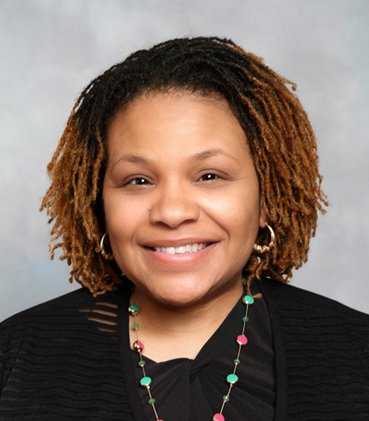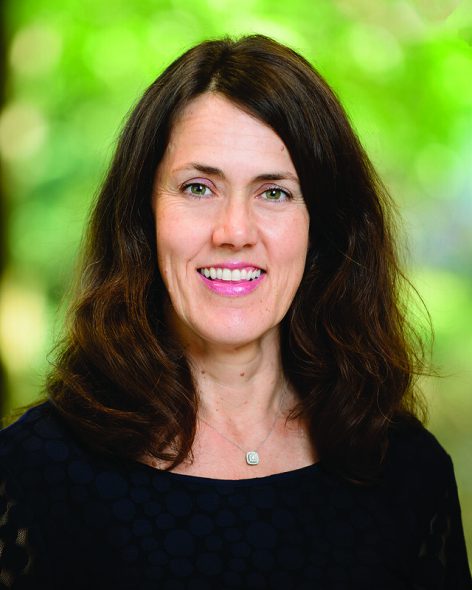Pandemic Caused Fewer People To Seek Cancer Screenings
Doctors urge people to resume getting screened, accessing medical care.
Doctors throughout Milwaukee are urging people to resume getting cancer screenings after seeing a sharp drop-off in patients throughout the pandemic.
Dr. Joan Neuner, an internal medicine physician and leader of the Medical College of Wisconsin’s Cancer Prevention and Outcomes program, said cancer screening dropped from 60% to 80% at the beginning of the pandemic, depending on the type of cancer.

Dr. LaKesha Lawrence is an OB/GYN with Milwaukee Health Services. Photo provided by Pam Clark, Milwaukee Health Services/NNS
In addition, Ascension Wisconsin’s Milwaukee locations have seen a 20% decrease in people seeking screenings compared to this time in 2019, said Dr. Therese Kerwel, a colorectal surgeon at Ascension. Dr. LaKesha Lawrence, an OB/GYN at Milwaukee Health Services, also said she’s seen a decrease in people seeking screenings.
According to a report from the Kaiser Family Foundation, 48% of Americans polled in May 2020 had delayed medical care because of the pandemic. Of those, roughly 11% had their conditions worsen because of them.
When it comes to detecting cancer, timing is crucial. Some screening methods, such as those for colon cancer, can help prevent cancer entirely.
For instance, the five-year survival rate for early-stage colon cancer is about 90%, Kerwel said. The disease is much easier to treat early on. In later stages, the survival rate drops to just 15% as the disease advances.
“It’s a very difficult fight,” Kerwel said. “People don’t win that fight.”
Kerwel said recommendations for screening are getting earlier. People should start getting screened yearly for colorectal cancer as early as 45 years of age. The previous suggestion was 50.
Lawrence said women should get yearly screenings, including mammograms and cervical screenings, from the time they turn 30. In addition, Neuner said it is important to get tested regularly for colon, lung and breast cancer.
Kerwel said most preventative exams are covered by insurance. BadgerCare and Medicaid cover most exams, adding that regular doctor visits can help ensure you get the screenings and examinations needed.
Lawrence noted that Milwaukee Health Services, a federally funded health center, provides primary care to patients regardless of their ability to pay.
The earlier the better
Neuner said it can be difficult to convince patients of the importance of early screening because it may not always seem urgent.

Dr. Therese Kerwel is a colorectal surgeon with Ascension Health. Photo provided by Victoria Schmidt, Ascension Wisconsin/NNS.
“You’re taking healthy people and asking them to do something that takes time,” Neuner said.
For many people on Milwaukee’s North Side, where the Medical College of Wisconsin reports high rates of colorectal, prostate and lung cancer, it’s more than just an inconvenience, Neuner said. People might be holding multiple jobs with rigid schedules or have trouble securing child care.
Lawrence said many patients may also be fearful of visiting because of COVID-19. Still others have lack transportation or don’t have a primary care provider.
“For many people, it’s a fear of the unknown and that what’s going to be found is going to change their lives,” Lawrence said.
Cancer disproportionately affects communities of color. From 2009 to 2013, Wisconsin’s Black population had one of the highest incidences of colorectal cancer at about 50 per 100,000. The Native American population had a rate that was slightly higher, according to the Wisconsin Department of Health Services.
Lung cancer also disproportionately affects the Black and Native American populations. Lung cancer is considered one of the deadliest forms of cancer and kills more people in Wisconsin on average than breast, prostate and colorectal cancer combined, based on data from the Department of Health Services.
When it comes to screening, Lawrence said the message is simple: Don’t delay. The earlier the better.
“Don’t fear the unknown,” Lawrence said. “Fear not being treated.”
When should I get screened?
Screening recommendations by age range from Ascension Wisconsin:
In your 20s:
- Women should begin receiving PAP smears and clinical breast exams
In your 30s
- Women should add HPV testing and continue previous exams
In your 40s
- Men and women should begin screening for colorectal cancer beginning at age 45
- Women should begin receiving mammograms yearly
In your 50s and beyond:
- Continue screenings for colorectal cancers
- Men and women with a history of smoking should get screened for lung cancer
- Consult regularly with your doctor for other potential screening needs
Doctors stress cancer screenings after COVID-19 pandemic slide was originally published by the Milwaukee Neighborhood News Service.






















